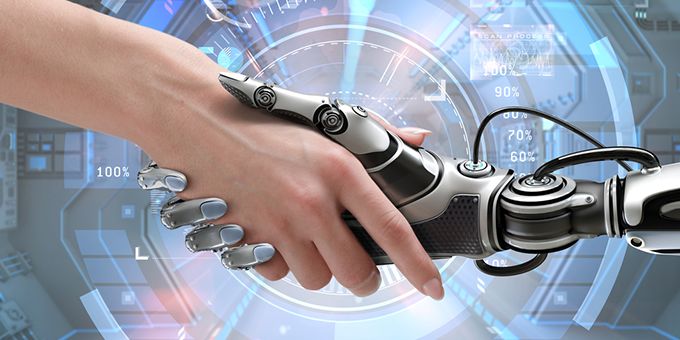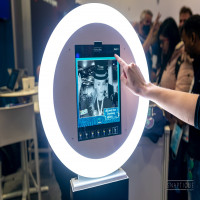Denso Corporation's Strategic Innovations Driving Growth in the Collaborative Robot Market

Strong 8k brings an ultra-HD IPTV experience to your living room and your pocket.
Denso Corporation, a leader in collaborative robot market and manufacturing solutions, has increasingly made strides in the rapidly evolving collaborative robot (cobot) market. Known for its precision engineering, Denso has adapted to the increasing demand for automation and robotics by innovating and positioning itself at the forefront of the industry. As the collaborative robot market continues to expand, Denso’s strategic initiatives, innovations, and developments are shaping the future of automation across various sectors, not just limited to automotive manufacturing but extending to industries such as healthcare, electronics, and logistics.
In this article, we explore Denso’s role in the collaborative robot market, its strategic approach, and the emerging innovations that drive its continued success.
Denso’s Entry into the Collaborative Robot Market
Denso Corporation, a subsidiary of Toyota Group, is primarily recognized for its expertise in automotive components and manufacturing systems. However, as demand for flexible and efficient manufacturing solutions grew, Denso expanded its reach into robotics. The company quickly recognized the potential of collaborative robots—robots designed to work safely alongside human operators—making them a valuable asset in industries looking to improve productivity and safety.
As early as 2015, Denso made its foray into the collaborative robotics space with its launch of the "Cobotta" robot, a compact, versatile, and user-friendly cobot. The Cobotta was designed to assist with tasks such as assembly, inspection, and testing while working safely with human operators. This initiative marked Denso’s commitment to contributing to the growing collaborative robot market and tapping into the rapidly expanding sector.
Strategy for Expansion in the Collaborative Robot Market
Denso’s strategy for becoming a key player in the collaborative robot market revolves around a mix of advanced robotics technology, strong partnerships, and market diversification. The company’s approach is multifaceted, combining R&D investment, collaboration with key industry players, and a focus on scalability and user-friendliness in its robotic solutions.
1. Technological Innovation and R&D Investment
Denso’s approach to innovation in the collaborative robot space centers on precision, reliability, and safety. The company has made significant investments in research and development, focusing on improving the capabilities of its robots, enhancing their integration into existing production lines, and advancing their ability to interact with human workers in a more intuitive way.
The Cobotta robot, for instance, features cutting-edge AI technology that allows it to be easily programmed and controlled by non-expert users. Denso’s emphasis on simplicity and ease-of-use is a response to the need for accessible automation solutions, especially for small and medium-sized businesses that may lack extensive expertise in robotics.
Furthermore, Denso’s robots are designed to be highly adaptable, able to work in a wide range of industries beyond automotive manufacturing. With features like integrated vision systems and customizable programming, Denso robots can be deployed across diverse sectors such as electronics, consumer goods, and food processing, where automation needs vary and require flexibility.
2. Strategic Partnerships
Denso has not only focused on internal innovation but also built key partnerships to enhance its position in the collaborative robot market. Collaborating with other industry leaders and tech companies allows Denso to leverage additional expertise and integrate the latest technologies into its robotic systems.
A notable example is Denso’s collaboration with FANUC, a major player in industrial automation. This partnership allows Denso to tap into FANUC’s extensive experience in industrial robots, incorporating advanced AI, machine learning, and motion control systems into its collaborative robots. By combining Denso’s robotics expertise with FANUC’s industrial automation solutions, the two companies are creating more advanced, powerful robots that can take on a broader range of tasks.
3. Scalability and User-Friendliness
In an effort to broaden the market for collaborative robots, Denso has focused on scalability and user-friendliness in its product offerings. One of the primary barriers to the adoption of robotics in industries like manufacturing and warehousing is the perceived complexity of implementing automation. Denso’s Cobotta robot, with its intuitive user interface and simple programming methods, is aimed at reducing the technological barrier to entry for businesses of all sizes. Its ease of use makes it ideal for small businesses that may not have in-house robotics specialists or dedicated automation teams.
Moreover, scalability is critical to Denso’s strategy. As industries increasingly adopt automation, businesses require robots that can scale with their operations. Denso's robots are designed to easily integrate into existing workflows, providing companies with the ability to start with a few cobots and expand over time without the need for a complete overhaul of their production systems.
Emerging Innovations in Denso’s Collaborative Robots
As Denso continues to lead the way in the collaborative robot market, it is driving several emerging innovations that are shaping the future of robotics. These innovations include advancements in artificial intelligence, integration with Industry 4.0 technologies, and enhanced collaborative features for better human-robot interaction.
1. Artificial Intelligence Integration
One of the key innovations Denso is pushing forward is the integration of advanced AI in its collaborative robots. AI-powered cobots can learn from their environment, adapt to changes, and improve over time. By leveraging machine learning algorithms, Denso’s cobots can optimize their movements, anticipate changes in the production environment, and perform tasks with greater precision and efficiency.
For example, Denso’s Cobotta robot uses AI to process data from its sensors, allowing it to detect and avoid obstacles in real time. This capability makes it safer to work alongside human operators and enhances the overall safety of the workspace. Additionally, the integration of AI helps to reduce downtime and increase the efficiency of production lines, ultimately benefiting businesses by improving productivity and reducing costs.
2. Human-Robot Collaboration
Denso’s cobots are designed with human-robot collaboration in mind. These robots feature sensitive touch control, collision detection systems, and easy programming interfaces, enabling them to safely and effectively work alongside human workers. This collaboration is not limited to simple tasks; cobots can assist with complex, high-precision operations, such as product inspection, assembly, and testing, while allowing human workers to focus on tasks that require creativity, problem-solving, and decision-making.
Moreover, Denso’s cobots are equipped with advanced sensors that allow them to monitor human workers’ movements in real time, ensuring that the robots can react to any unexpected actions or changes in the environment. This level of responsiveness enhances the safety of collaborative workspaces, where human workers and robots share the same physical space.
3. Industry 4.0 Integration
Denso is also focusing on the integration of collaborative robots with Industry 4.0 technologies, such as the Internet of Things (IoT), cloud computing, and big data analytics. By connecting cobots to centralized control systems and allowing real-time data exchange, businesses can monitor the performance of their robots and make data-driven decisions to optimize their workflows.
For instance, cloud-connected cobots can send real-time performance data to manufacturers, allowing them to track metrics such as task completion times, energy consumption, and error rates. This integration with IoT and big data analytics ensures that businesses can fine-tune their automation systems, improving productivity and reducing operational costs.
Denso’s Role in the Future of Collaborative Robotics
Denso’s innovative products, strategic partnerships, and focus on emerging technologies are positioning the company as a key player in the collaborative robot market. By focusing on technological advancements in AI, human-robot collaboration, and Industry 4.0 integration, Denso is pushing the boundaries of what collaborative robots can do. As industries continue to seek automation solutions that enhance productivity, safety, and efficiency, Denso’s robots will play a central role in transforming manufacturing, logistics, healthcare, and beyond.
As the collaborative robot market evolves, Denso’s continuous innovations and commitment to scalability, ease of use, and strategic partnerships will ensure its place at the forefront of the automation revolution.
Note: IndiBlogHub features both user-submitted and editorial content. We do not verify third-party contributions. Read our Disclaimer and Privacy Policyfor details.


